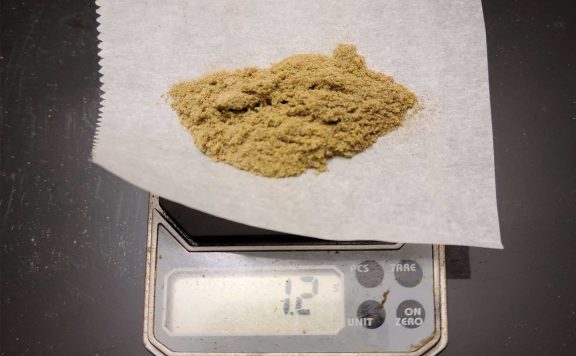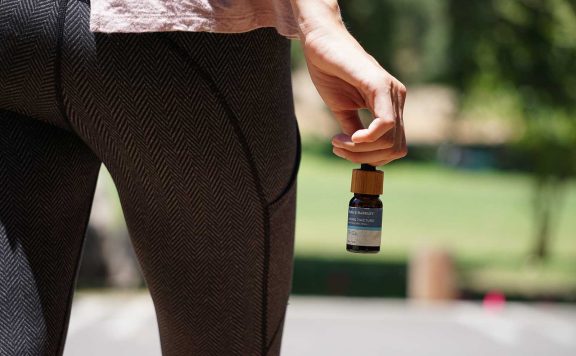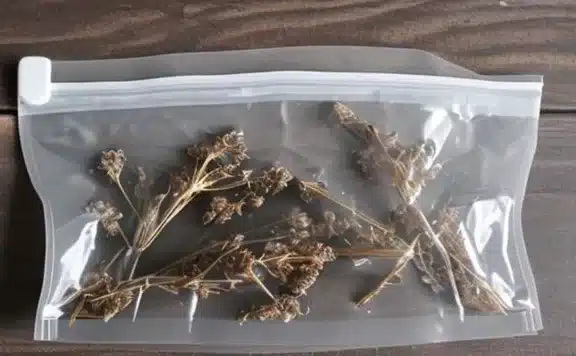One of the main active compounds found in cannabis is tetrahydrocannabinol (THC). It is responsible for many of the effects associated with cannabis use, including euphoria, relaxation, and altered perception of time and space. However, THC also has potential therapeutic benefits for conditions such as chronic pain, nausea, and anxiety. So What does THC do?
In this article, we will explore how THC is different from CBD, how it works in the body, and its potential benefits and risks. By the end, you should have a better understanding of THC and its effects, whether you are a cannabis user or not.
What is THC?
THC, or tetrahydrocannabinol, is a chemical compound found in the cannabis plant. It is one of many compounds known as cannabinoids, which interact with the body’s endocannabinoid system to produce various effects. THC is responsible for many of the psychoactive effects associated with cannabis use, including euphoria, relaxation, and altered perception of time and space.
THC content can vary widely depending on the strain of cannabis. Some strains are bred to have higher levels of THC, while others have lower levels or are bred specifically for medicinal purposes with higher levels of other cannabinoids such as cannabidiol (CBD). Typically it is consumed by smoking, vaporizing, or eating cannabis products.
In addition to its psychoactive effects, THC also has potential therapeutic benefits. Studies have shown that THC can help alleviate symptoms of conditions such as chronic pain, nausea, and anxiety. However, it is important to note that these potential benefits are still being researched, and there is still much to learn about the effects of THC on the body.
How does THC work in the body?
It interacts with the body’s endocannabinoid system (ECS), which is a complex network of receptors, enzymes, and endocannabinoids that help regulate various physiological processes such as pain sensation, appetite, and mood. The ECS is also involved in regulating the immune system and maintaining homeostasis in the body.
THC binds to the CB1 receptors found in the brain and nervous system, which are primarily responsible for the psychoactive effects. When it binds to these receptors, THC can affect various neurotransmitters, including dopamine, which is responsible for feelings of pleasure and reward.
In addition to its effects on the CB1 receptors, it also interacts with the CB2 receptors found in the immune system and other peripheral tissues. This interaction can affect inflammation and pain perception, which may contribute to its potential therapeutic effects.

Does THC make you feel good?
Its effects on the brain can produce feelings of euphoria and relaxation. When THC binds to the CB1 receptors in the brain, it can increase the release of dopamine, a neurotransmitter associated with pleasure and reward. This increase in dopamine can contribute to “feeling stoned” which is associated with cannabis use.
In addition to its effects on dopamine, THC can also affect other neurotransmitters, such as serotonin and GABA, which can contribute to its overall effects on mood and relaxation. It can also alter perception of time and space, and may enhance sensory experiences such as music or food.
However the effects of THC can vary depending on the dosage, method of consumption, and individual factors such as age, weight, and tolerance. Some people may experience negative effects such as anxiety or paranoia, particularly when consuming high doses or using cannabis for the first time. Additionally, regular or heavy use of cannabis can lead to tolerance, which may require higher doses to achieve the same effects.
What are the potential health benefits of THC?
THC has been shown to have potential therapeutic benefits for a variety of conditions, including chronic pain, nausea, and anxiety. Studies have found that THC can help alleviate pain by reducing inflammation and modulating pain signals in the nervous system. THC may also be effective in treating nausea and vomiting, particularly in patients undergoing chemotherapy or with other medical conditions that affect the digestive system.
It has also been shown to have potential benefits for mental health conditions such as anxiety and depression. Although the effects of THC on mood can vary widely depending on the individual, some studies have found that THC can reduce anxiety and improve mood in certain populations.
In addition to these potential benefits, THC may have other therapeutic uses, such as reducing intraocular pressure in patients with glaucoma, improving sleep in patients with sleep disorders, and reducing spasticity in patients with multiple sclerosis.
However, it is important to note that the potential health benefits of THC are still being researched, and more studies are needed to fully understand its effects on the body.
What are the side effects of THC?
Some of the short-term effects of THC include:
- Impaired memory and concentration: THC can affect short-term memory and make it difficult to concentrate on tasks.
- Altered perception: THC can affect the perception of time, space, and senses such as touch, sight, and hearing.
- Impaired coordination: THC can affect motor coordination and reaction time, making it unsafe to drive or operate machinery while under the influence of cannabis.
- Increased heart rate: THC can increase heart rate, which can be problematic for individuals with cardiovascular issues.
- Dry mouth: THC can cause dry mouth, which can lead to thirst and discomfort.
While some people enjoy the effects produced by this cannabinoid, others may experience unpleasant effects such as anxiety or paranoia. The intensity and duration of these effects can vary depending on a number of factors, including the individual’s THC tolerance and metabolism.
References and further reading
- National Institute on Drug Abuse. (2021). DrugFacts: Marijuana. https://www.drugabuse.gov/publications/drugfacts/marijuana
- Russo, E. B. (2011). Taming THC: Potential Cannabis Synergy and Phytocannabinoid‐Terpenoid Entourage Effects. British Journal of Pharmacology, 163(7), 1344-1364. https://doi.org/10.1111/j.1476-5381.2011.01238.x
- Huestis, M. A. (2007). Human Cannabinoid Pharmacokinetics. Chemistry & Biodiversity, 4(8), 1770-1804. https://doi.org/10.1002/cbdv.200790152
- Grotenhermen, F. (2003). Pharmacokinetics and Pharmacodynamics of Cannabinoids. Clinical Pharmacokinetics, 42(4), 327-360. https://doi.org/10.2165/00003088-200342040-00003
- Freeman, A. M., Petrilli, K., Lees, R., Hindocha, C., Mokrysz, C., Curran, H. V., & Saunders, R. (2020). How Does Cannabis Use Affect Outcomes After Traumatic Injury? A Systematic Review and Meta-Analysis. Journal of Trauma and Acute Care Surgery, 89(4), 757-766. https://doi.org/10.1097/TA.0000000000002849








